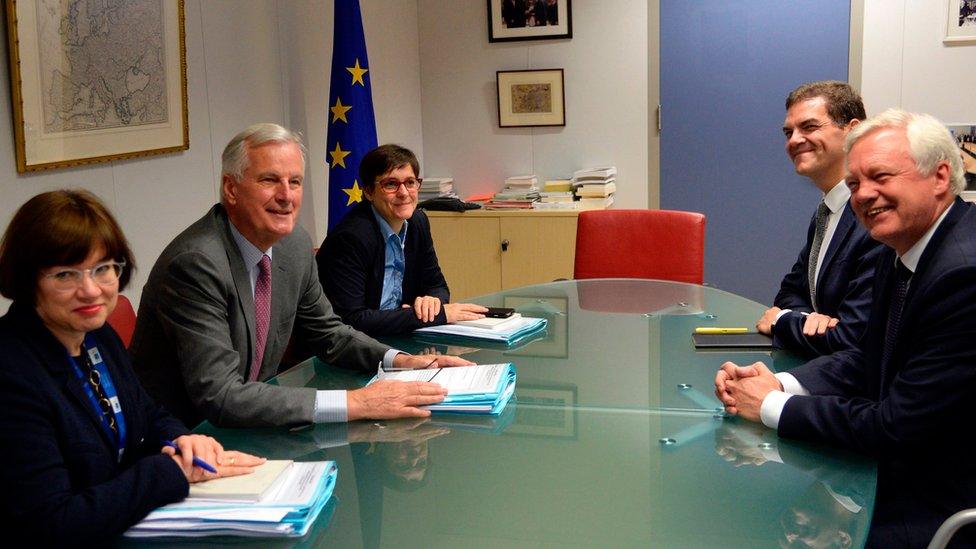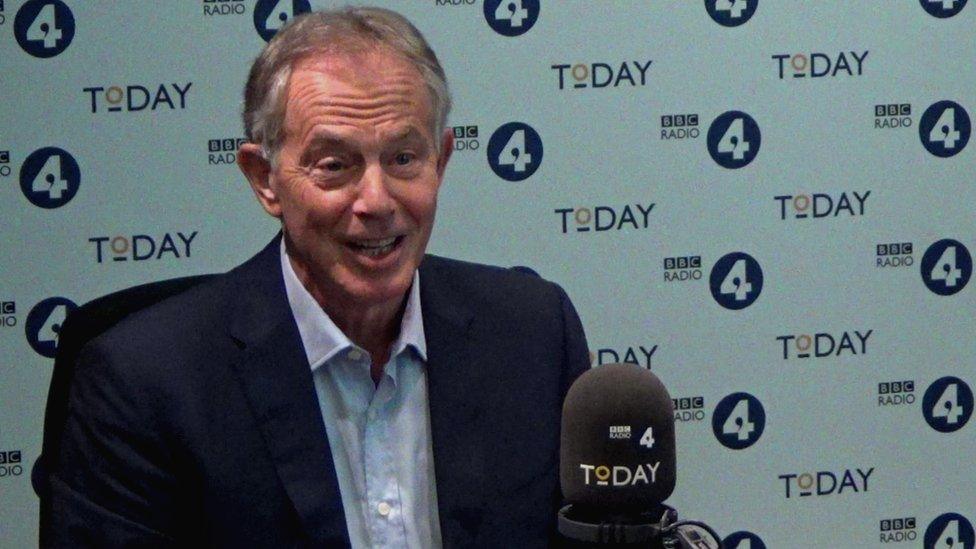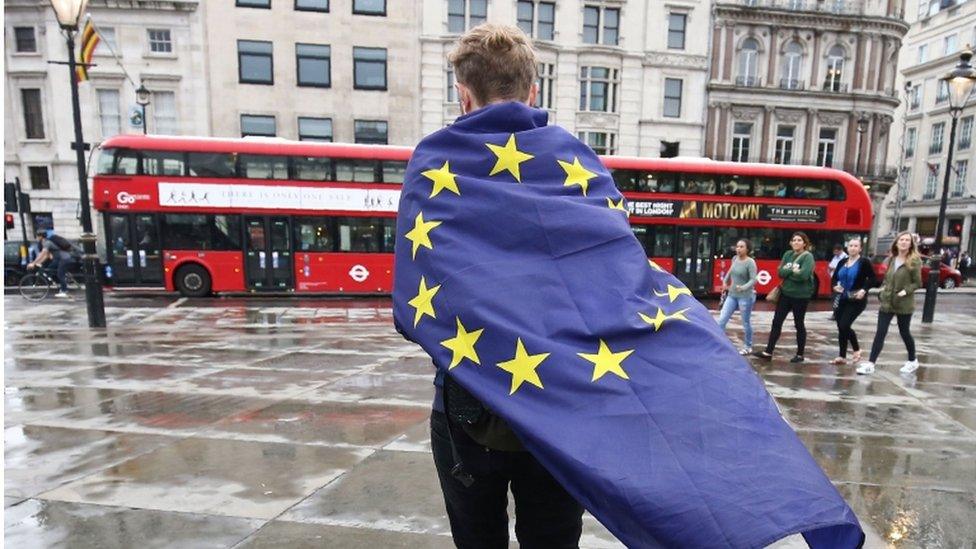Brexit talks resume: Get down to business, David Davis urges
- Published

The Lib Dems picked up on a lack of papers on one side of the table in this photograph
Brexit Secretary David Davis has called on both sides in the negotiations on the UK's departure from the European Union to "get down to business".
Mr Davis was in Brussels to launch the second round of formal talks.
He said his priority was to "lift the uncertainty" for EU citizens living in the UK and Britons living in the EU.
The EU says there must be substantial progress on this - and on a financial settlement and the issue of the Irish border - before trade talks can begin.
Appearing alongside EU chief negotiator Michel Barnier, Mr Davis said there had been a good start to the process and it was time to get to the "substance of the matter".
David Davis (left) and Michel Barnier resume Brexit talks in Brussels
Mr Barnier said the negotiators would "now delve into the heart of the matter".
Talks will cover citizens' rights, finance, Northern Ireland and Euratom, with separate negotiating teams set up for each issue.
A UK government source told the BBC that 98 British officials were in Brussels for the negotiations.
Mr Davis spent two to three hours in the EU quarter, meeting Mr Barnier for between 45 minutes and a hour before returning to London.
The two men are expected to give an update on progress made at a press conference on Thursday.
Earlier this month, Theresa May's offer to give the three million EU citizens in the UK "settled status" after Brexit was immediately dismissed by European Council President Donald Tusk as "below our expectations".
And Mr Barnier has said there were still major differences between the EU and UK on the subject.
Speaking at a separate European Council meeting in Brussels, Foreign Secretary Boris Johnson insisted the UK had made a "very fair, serious offer".

Analysis
By Kevin Connolly, BBC Europe correspondent
The call to "get down to business" from David Davis is meant to signal that the Brexit talks are entering a serious phase after an opening session of pleasantries and procedural discussions.
That might raise eyebrows on the European side where there's a perception that Britain dithered for months after the Brexit referendum before getting down to talks.
The UK says it's prioritising the issue of mutual citizens rights after its opening proposals received a lukewarm response in Brussels.
The atmosphere around this second round of talks may have been improved a little by a government acknowledgement that the UK has obligations to the EU which will survive withdrawal and which need to be resolved.

Mr Johnson has said that Brussels can "go whistle" if it expected the UK to pay an "extortionate" bill as part of the separation.
The government's official position, confirmed in a Parliamentary statement last week, is that it will "work with the EU to determine a fair settlement of the UK's rights and obligations as a departing member state, in accordance with the law and in the spirit of our continuing partnership".
The EU has insisted that citizen rights - along with the "divorce payment" and border issues - must be dealt with before future UK-EU trade can be discussed.
'A few minutes in Brussels'
Sir Keir Starmer, Labour's shadow Brexit secretary, criticised Mr Davis for spending "only a few minutes in Brussels before heading back to Whitehall".
"There is no agreed cabinet position on vital Brexit issues, the negotiating team is not prepared and the Prime Minister has lost her authority," he said, calling for engagement "with the substance of talks".
The Liberal Democrats' Brexit spokesperson, Tom Brake, said Mr Davis' brief visit to Brussels - and a lack of briefing papers on the UK side of the table in when the negotiators posed for a photograph - was proof that government preparation for the negotiations was lacking.
"He didn't have any position papers with him because this government has no agreed Brexit position," he said.
Lord O'Donnell, the UK's former top civil servant, suggested the chances of a smooth Brexit were at risk.
"It appears that cabinet members haven't yet finished negotiating with each other, never mind the EU," he was quoted by Reuters news agency as saying.
- Published30 December 2020

- Published16 July 2017

- Published15 July 2017

- Published10 July 2017

- Published28 March 2017
